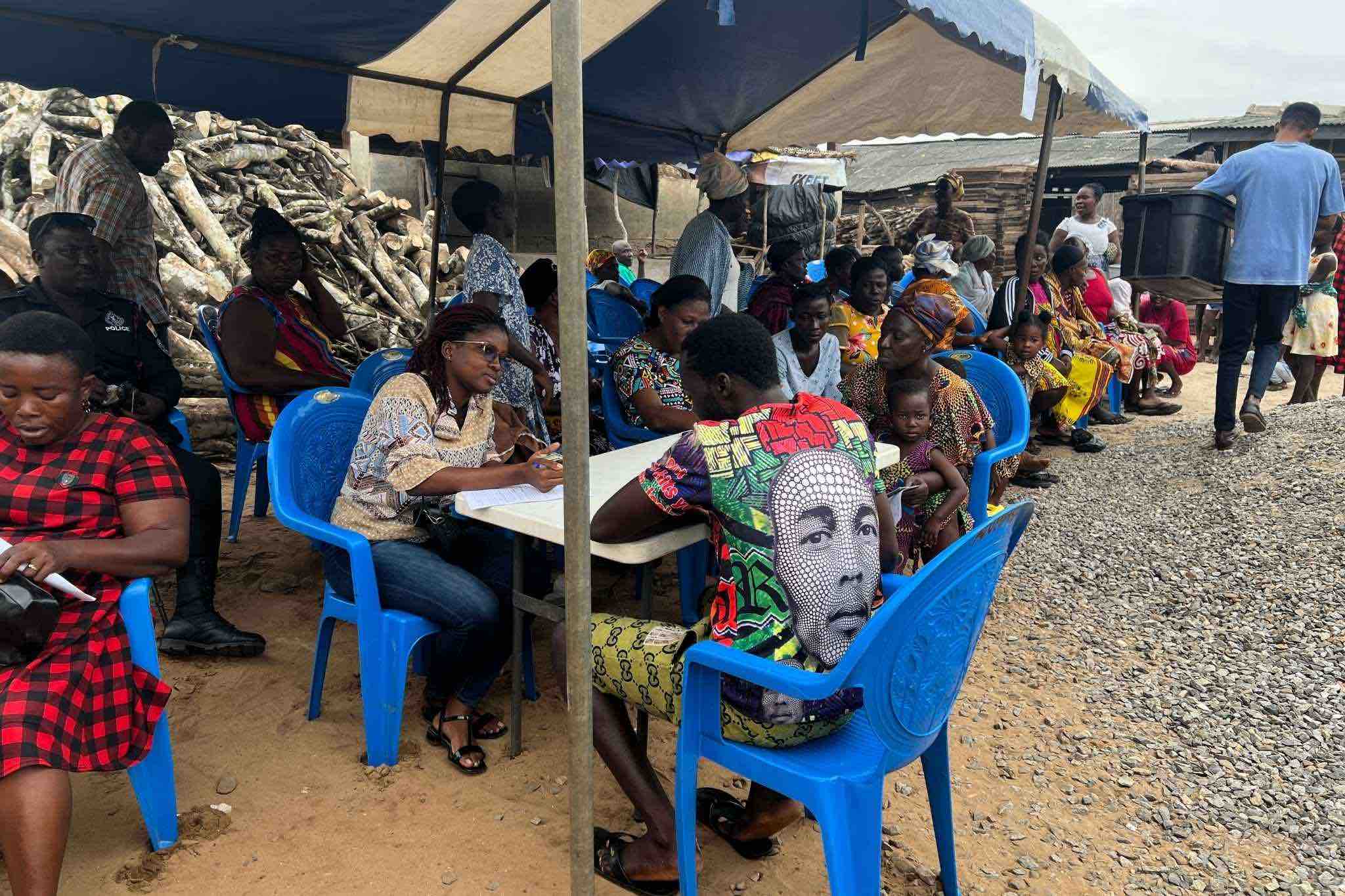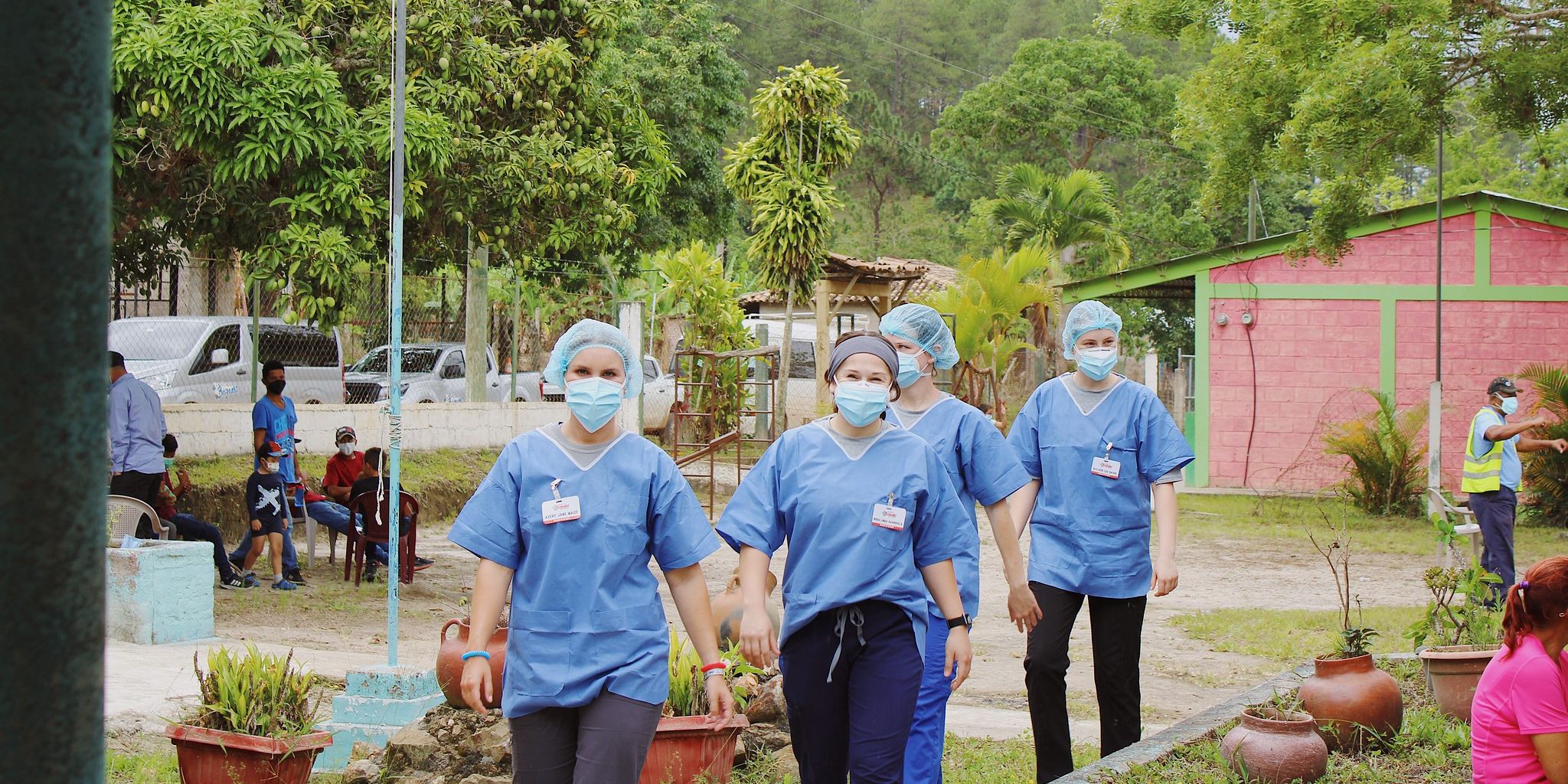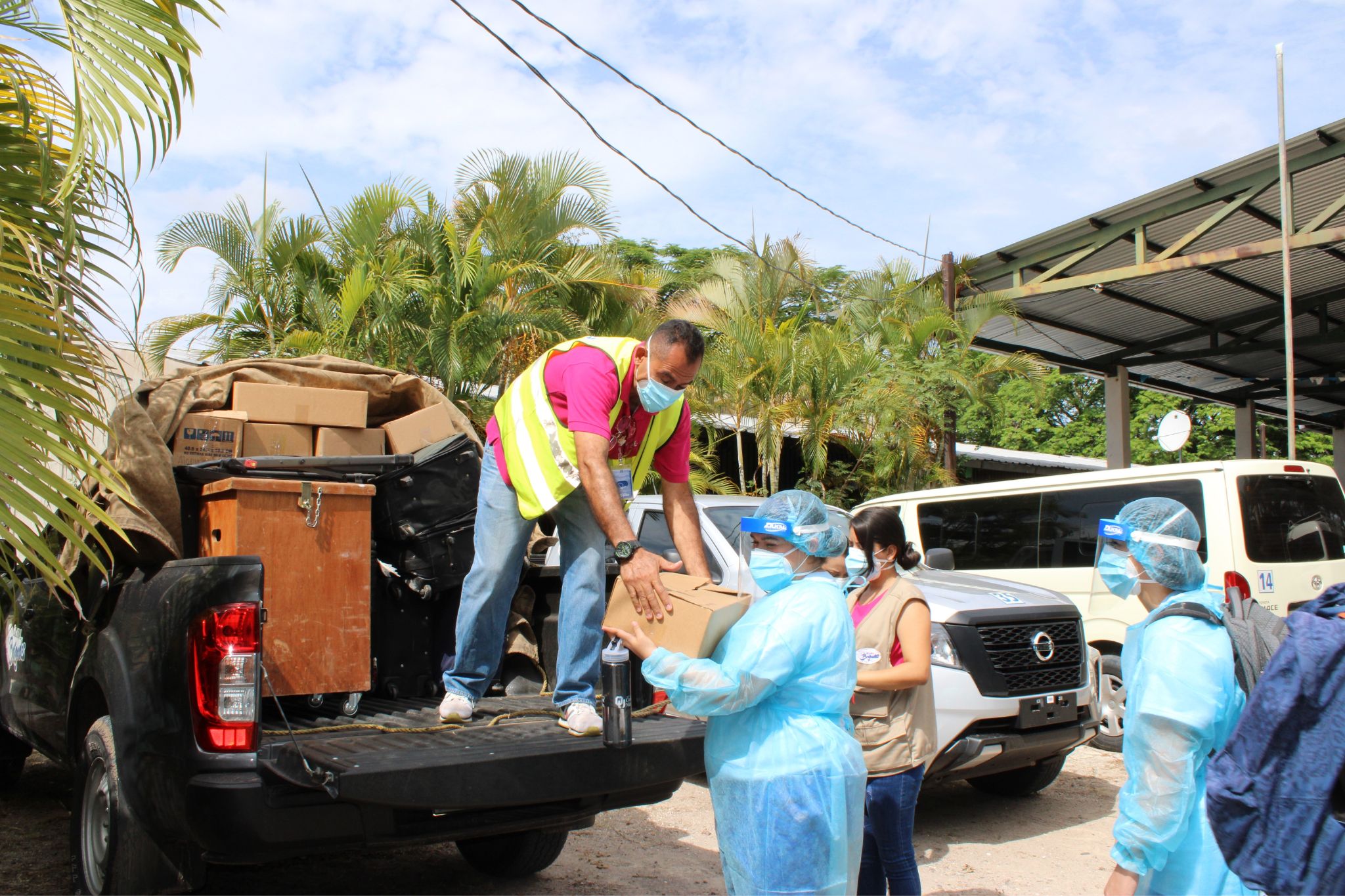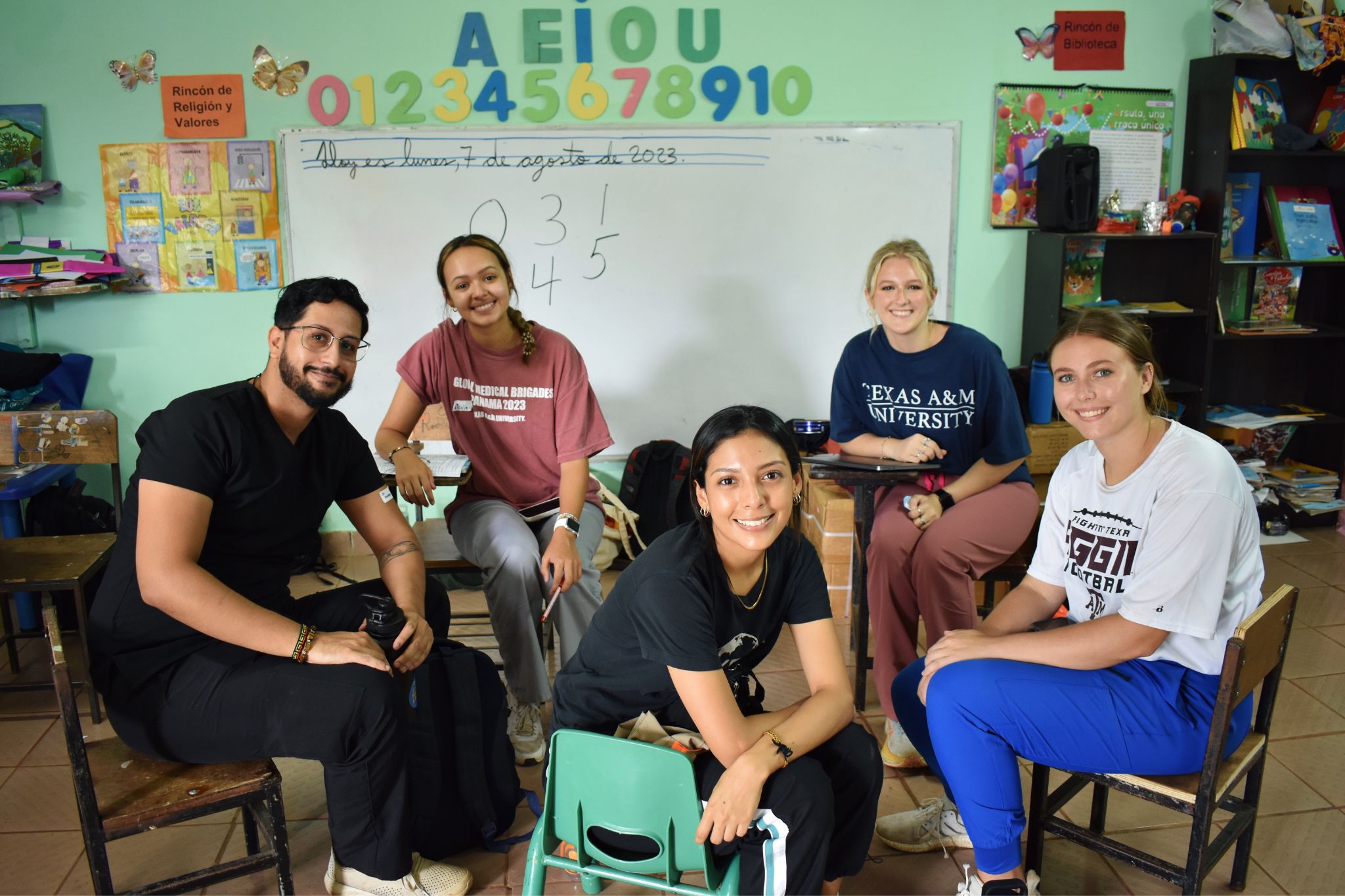Volunteering with vulnerable populations is a powerful opportunity to contribute to meaningful work, but it also comes with immense responsibility. Poorly executed volunteer efforts in the face of layers of challenges can stand in the way of progress or, worse yet, foster dependency.
Ethical practices are critical when collaborating with communities to build trust and mutual respect. That includes intentionality in planning, cultural humility, and a commitment to sustainability for a positive, lasting impact.
At Global Brigades, we partner with each local community to address health disparities and infrastructure challenges through sustainable initiatives. This includes equipping our volunteers with the knowledge and support they need to engage ethically and responsibly.
Plan Well
Ethical volunteering is rooted in creating a meaningful, sustainable impact while respecting the autonomy and needs of a community. It all starts with a well-thought-out plan to ensure that an organization’s interventions align with the goals of the partner community.
Planning ensures resources are used effectively and projects are sustainable, avoiding dependency or criticisms of voluntourism. (Voluntourism combines tourism with volunteering. While it can result in short-term aid, it can prioritize traveler experience over impact.)
Proper planning includes research backed by data, setting realistic goals, defining roles, and preparing for logistical challenges like resource inequalities or access to partner sites. This includes ensuring the initiative can be maintained by local personnel once volunteers leave.
Organizations like Global Brigades work closely with partner communities to co-create initiatives that are effective and respectful of local expertise, leadership, and potential ethical issues.
On the volunteer side, planning involves learning about the local culture and its challenges to come to the experience with respect. Thoughtful preparation allows young people to contribute meaningfully, creating lasting impacts while respecting the autonomy of partner communities.
Ethical volunteering, especially medical volunteering, also means being mindful of your own limitations. On Global Medical Brigades, only licensed healthcare professionals are permitted to work directly with patient care.
Student volunteers, even those in pre-med programs, are there for an educational experience that includes shadowing our providers, supporting preventative care, and patient outreach. These are all essential roles to support our volunteer programs and the well-being of patients.
Ethical volunteering starts with choosing an ethical organization. Learn more about Global Medical Brigades, the largest student-led movement for global health.
Be Responsible and Respectful
How you conduct yourself and interact with the community and organization you represent is an important piece of an ethical experience abroad. Using empowering language is critical. It shows respect for the individuals and communities you are collaborating with.
Avoid any language that suggests white saviorism or the idea that you are there to “serve,” “save,” or “heal” communities in need. Focus on developing strengths and opportunities for collaboration with communities that are partners in that effort, not passive recipients of aid.
Once you’re in the community, reliability is another critical piece. Commit to being a reliable part of international volunteering efforts. Follow guidance and schedules set by your organization, as inconsistencies can have a ripple effect on a program.
Present yourself appropriately. You should have already learned about cultural norms as part of your planning, including how you dress. With Global Brigades, we provide packing lists that include what to wear for the work you’ll be doing with comfort and cultural sensitivity in mind.
Finally, consider your behavior. Whether interacting with community members or your team, maintain a demeanor of empathy, respect, and openness to learning. This fosters an environment of trust and ensures that your presence contributes to a positive relationship with vulnerable groups.
Have Cultural Humility
We’ve already discussed how important it is to learn about the communities you’ll be working with before your arrival. That includes learning about the community’s customs, values, history, and challenges so that you can navigate interactions respectfully and avoid unintentionally causing offense.
Let’s get into some specifics so that you can demonstrate cultural humility and an open mind about what should be meaningful, rewarding partnerships:
- Set aside preconceived notions. We all have personal beliefs and potential biases that can get in the way of learning about communities that aren’t like our own. Think seriously about any stereotypes that you need to address ahead of your experience.
- Approach interactions with respect. Recognize that you’re a guest in partner communities. Be curious but humble during your volunteer experience. Understand that you’re there to learn as much as to contribute.
- Avoid snap judgments. Every culture is unique, and making generalizations about cultures that are new to you can hinder meaningful engagement. Think back to those stereotypes you’re busting if you notice these thoughts cropping up.
- Be open to new perspectives. Acknowledge that your way of thinking or doing things may not be universally applicable or better. Be willing to adapt and let the community or volunteer organizations guide your involvement.
- Avoid hero narratives. This comes back to empowering language and white saviorism. Refrain from seeing yourself as someone there to rescue others. Consider the strengths of a community and potential for autonomy over performative activism.
- Listen and observe. Spend time listening to community members about their needs and strengths. Prepping with basic language skills can help. Allow team leads on volunteer programs to guide you around community dynamics and potential areas for collaboration.
- Respect boundaries. Be mindful of cultural boundaries, especially around sensitive topics, religion, or traditions. Always follow the lead of your partnering organization in your volunteer work on topics to avoid, or that may require some additional sensitivity.
By prioritizing cultural understanding over quick fixes to perceived problems, you can build genuine connections and contribute to more sustainable positive impacts.
Ensure Informed Consent
Social media is a great way to get the word out about the important work being done by nonprofits abroad. As a volunteer, it’s essential to be extra considerate with what you share to ensure individuals’ rights to privacy and dignity.
At Global Brigades, we suggest following the three Cs:
- Consent: Ask if you can take a photo or video and post it online. If you’re not able to ask due to a language barrier or other reasons, find an interpreter or team leader to avoid potential harm due to miscommunication.
- Content: Think about your intentions with what you’d like to post. Does it reflect your experience in an honest, culturally sensitive way? Avoid sensitive situations, particularly in the context of health clinics, or framing yourself as the hero of the story.
- Caption: Avoid generalizations and stereotypes. Identify the background and anyone pictured in that content. Highlight the sustainable aspects of the work you’re doing, and include a call to action to get the word out for potential volunteers.
If you’re working within a capacity that involves research with vulnerable populations like children or marginalized groups, your volunteer organization should have guidance for you.
Consent of research participants should always be voluntary and documented. No one should ever feel pressure to participate, and there should be ethical standards in place to allow participants to withdraw at any time.
For volunteers on Medical Brigades, consent goes even deeper. When working with patients, informed consent means obtaining clear permission before asking personal questions or assisting in medical care.
Volunteers should always consult local health professionals before engaging in activities involving sensitive information in host communities. This is especially true in cases of language barriers or with patients who have disabilities or mental health concerns.
Always check with a team lead if you’re worried about content when working with patients with diminished decision-making capacity.
Leave Behind a Stronger, Healthier Community
Ethical volunteering means focusing on sustainable, community-driven solutions that won’t foster a dependency on a non-governmental organization (NGO) or nonprofit. That means a high level of collaboration with local leaders to address long-term public health needs over temporary fixes.
It also means local empowerment through education, skills training, or resource development to enable self-sufficiency. Quality organizations measure their success by lasting impacts rather than by quick wins. For volunteers, this means their efforts contribute to meaningful, lasting change.
Join the Impact by Volunteering Internationally
Volunteering internationally offers a unique opportunity to create meaningful change while gaining a deeper understanding of the work being done globally in public health.
By working alongside communities, you can help create sustainable solutions that last years after your volunteer experience.
Ethical volunteering opportunities foster cross-cultural connections, allowing you to grow as a person while empowering others. This doesn't just strengthen communities. It builds a foundation for mutual respect, collaboration, and more equitable systems.
Ready to partner with us to make tangible, long-lasting impacts in our partner communities? Join a Medical Brigade for an ethical, meaningful experience.
FAQ
Does Global Medical Brigades have a volunteer code of ethics?
Global Brigades has a Code of Conduct for all volunteers that outlines program policies, expectations, and potential consequences for volunteers in violation of ethical guidelines.
What are the 4 ethical considerations?
The 4 basic ethical principles are:
- Autonomy: Empower communities to make their own informed decisions without overstepping.
- Beneficence: Create systems that empower communities to achieve their maximum benefit and remove conditions that stand in the way of that goal.
- Nonmaleficence: Do no harm. Avoid any action that could cause suffering down the line or leave systems without adequate support.
- Justice: Benefits and resources are treated equitably. All vulnerable people in a community have merit and an equal share.






